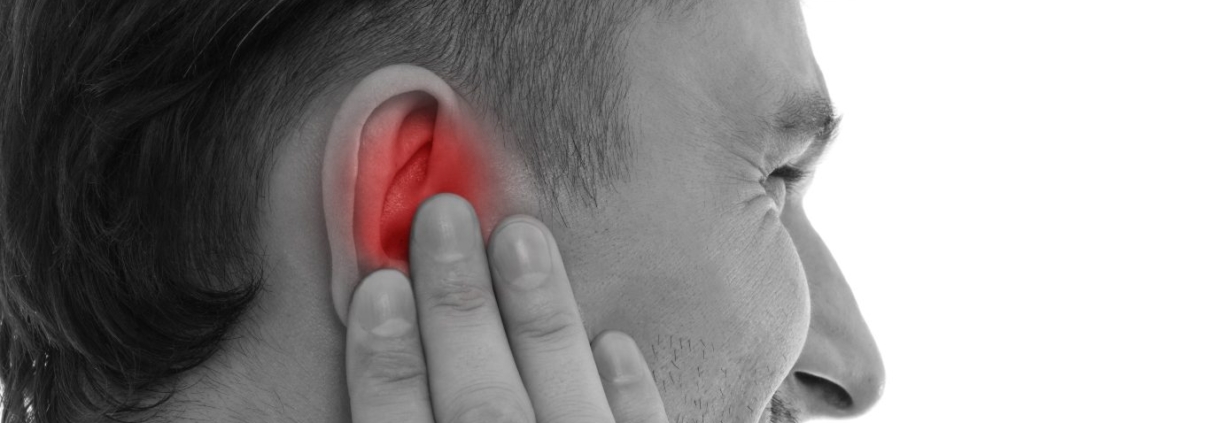What Is a Double Ear Infection? Symptoms, Causes, and Treatment
Many people are familiar with ear infections, but when both ears are affected at once, the condition can become more painful and challenging. This condition is called a Double Ear Infection, and it can occur in children and adults alike, often as a result of a virus or bacteria.
A Double Ear Infection refers to simultaneous inflammation or infection in both ears. This condition can result in more intense symptoms, a longer recovery time, and sometimes the need for more aggressive treatment.
Understanding Double Ear Infections
Double ear infections are medically referred to as bilateral otitis media. This occurs when both middle ears (the space behind the eardrum) become infected. It can lead to a range of uncomfortable symptoms such as pain, pressure, and temporary hearing difficulties.
While common in infants and toddlers due to their developing immune systems and smaller ear passages, adults can also develop double ear infections, especially following colds, allergies, or sinus infections.
Key Symptoms to Watch For
Recognizing the symptoms early can help ensure timely treatment and avoid complications. Common signs include:
- Pain in both ears, which may worsen when lying down
- A sensation of fullness or pressure in the ears
- Fever, especially in children
- Temporary hearing loss or muffled hearing
These symptoms may appear suddenly and can worsen quickly if not managed properly.
Is a Double Ear Infection Contagious?
The ear infection itself is not contagious, but the viruses or bacteria that cause it can be. If the underlying cause is a cold or upper respiratory infection, that illness can spread from person to person, potentially increasing the risk for ear infections in others.
It’s especially important to keep young children away from others when they have a cold or flu-like symptoms, as they are more susceptible to developing ear infections afterward.
Causes of Double Ear Infections
Several triggers can lead to a double ear infection. These typically include:
- Bacterial infections, often stemming from respiratory illnesses
- Viral infections, such as the common cold
- Allergies causing fluid buildup and swelling in the Eustachian tubes
- Blockage in the nasal passages that affects ear drainage
Some people may be more prone to ear infections due to anatomical issues or compromised immune function.
Diagnosis and Medical Evaluation
A healthcare provider typically uses an otoscope to look into both ears and assess inflammation, fluid buildup, or eardrum issues. In some cases, a tympanometry test may be used to evaluate the movement of the eardrum.
If symptoms are severe or persistent, your doctor may perform a culture to determine whether the infection is bacterial or viral.
Double Ear Infection Treatment Options
Treatments will vary depending on the underlying cause and severity of symptoms. Here are four important treatment aspects to know:
- Antibiotics: Often prescribed for bacterial infections, especially if symptoms are severe or prolonged.
- Pain Management: Over-the-counter medications like acetaminophen or ibuprofen can help reduce pain and fever.
- Ear Drops: May be recommended to reduce pain or inflammation.
- Rest and Fluids: Encouraged to support the body’s natural healing process.
In some recurrent or serious cases, especially in children, ear tubes may be surgically placed to help with drainage and prevent future infections.
Can You Prevent Double Ear Infections?
Preventive strategies can significantly reduce your risk of developing ear infections. Here are practical tips:
- Wash hands frequently to avoid spreading viruses
- Avoid exposure to tobacco smoke, which can irritate the ear and respiratory tract
- Keep up with vaccinations, including the flu shot and pneumococcal vaccine
- Manage allergies and sinus issues that could lead to ear blockage
These small habits can go a long way in maintaining ear health and reducing the chance of bilateral infections.
When to Seek Medical Help
It’s important to see a doctor if:
- Ear pain is intense or persists for more than a day
- There is fluid or pus draining from the ears
- You or your child experience hearing loss
- Fever persists or worsens
Prompt treatment can prevent complications such as ruptured eardrums or chronic ear problems.
Healing Time and Outlook
Most double ear infections clear up within 7 to 10 days with proper care. Children often bounce back quickly, though it’s essential to finish all prescribed medications and attend follow-up appointments to ensure complete recovery.
In adults, recovery may take a little longer depending on the severity and underlying health conditions.
Common Concerns Answered (Alternative to FAQs)
1. Can a double ear infection go away without antibiotics?
Yes, if it’s caused by a virus, your doctor may recommend monitoring symptoms rather than immediate antibiotics. Many mild infections clear up on their own.
2. Can I fly with a double ear infection?
It’s generally discouraged, especially during the acute phase. Changes in air pressure can worsen pain and increase the risk of eardrum damage.
3. Is hearing loss from a double ear infection permanent?
Usually, the hearing loss is temporary. Once the infection and fluid clear, hearing typically returns to normal. However, repeated infections may cause long-term issues if untreated.
4. How can I tell if my child has a double ear infection?
Watch for tugging at the ears, irritability, trouble sleeping, and balance issues. If both ears are affected, the symptoms may be more pronounced.
Final Thoughts
A Double Ear Infection can be painful and uncomfortable, but with early recognition and proper care, it can be treated effectively. While it’s more common in children, adults are not immune especially after respiratory illnesses. If you or a loved one are showing signs of infection in both ears, seeking medical advice early can help manage symptoms and prevent complications.
Taking simple preventive steps like managing allergies, practicing good hygiene, and avoiding smoking can also reduce your risk of future infections. By understanding the causes and treatments, you can better protect your hearing and overall health.


Leave a Reply
Want to join the discussion?Feel free to contribute!